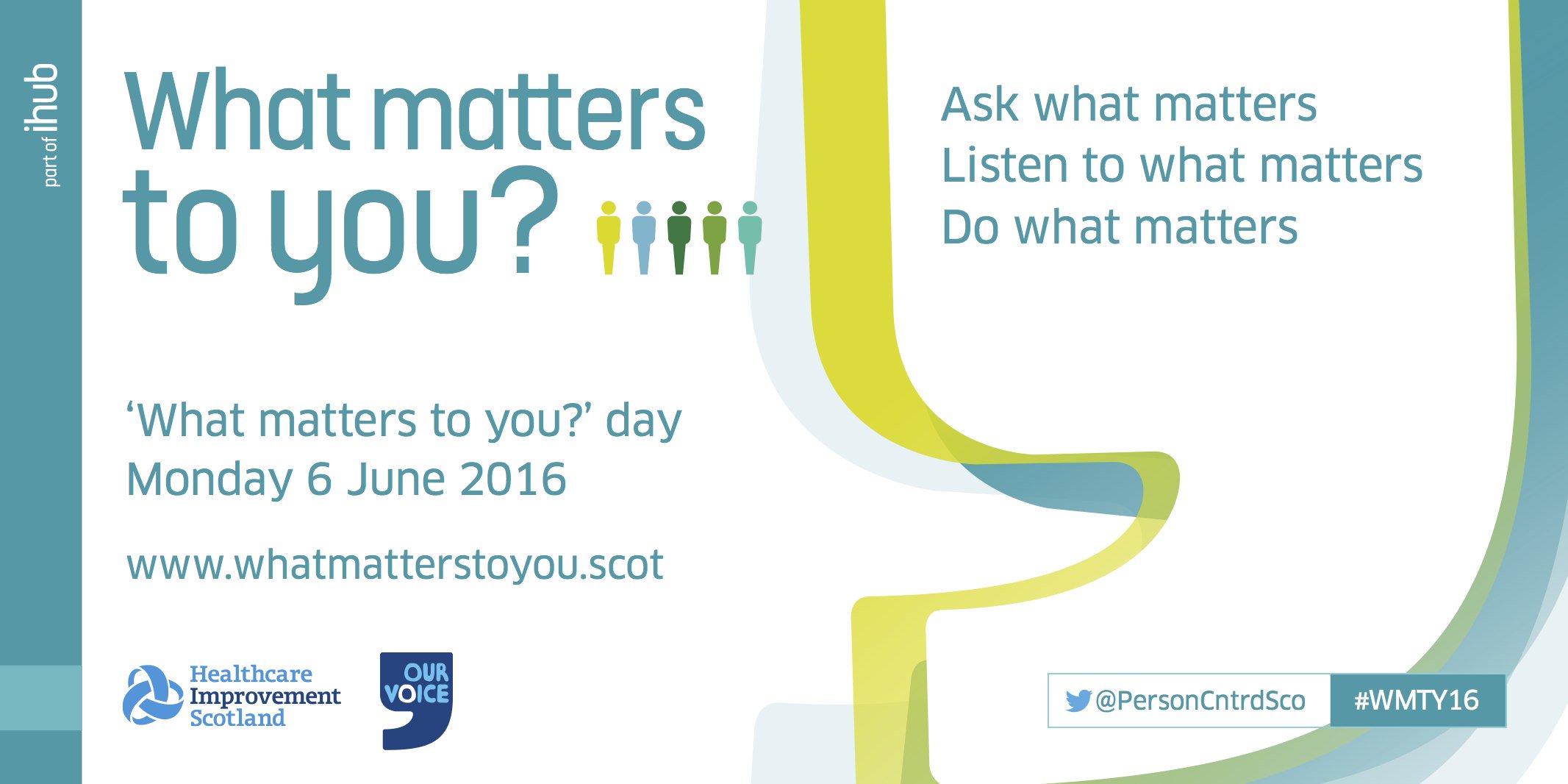The team is comprised of a mix of people including public volunteers, two nurses from one of our health boards, some staff from our national improvement body Healthcare Improvement Scotland and someone from Scottish Government.
On June 6th we aim to connect as many people as possible working in health and social care, early years and education; and encourage them to have a 'what matters to you?' conversation with the people they are supporting or caring for.
We are providing some free resources in the form of badges for staff and stickers for people who receive services and a website to register and order supporting materials at www.whatmatterstoyou.scot
We are encouraging people to come back to the website after their conversation and tell us who they spoke too, what happened and how it felt. We will then share experiences and learning with all participants.
The deeper purpose of this work is to promote a culture focused on listening and understanding; a system of support and care that is better at meeting people's needs and supporting them to live well on their terms. All too often we don't invest a little time to truly listen, to understand people's personal preferences, their fears and concerns, and this in turn leads to a failure to deliver high quality compassionate care tailored to their needs.
Our hope is that once people have a go at asking 'what matters to you?' and experience the benefits for both themselves and the people they serve, that they will continue to use this approach.
So far we have a range of participants registered in Scotland from health, social care, early years and some schools, but excitingly we also have participants registered from England, Wales, Eire, Denmark, New Zealand, Australia and even 18 hospitals from Brazil.
The ‘What matters to you?’ question can be asked in many different ways. For example: “What are the things that are important to you at the moment?” “What are some of the things you would you like to achieve as a result of this support?” “When you have a good day, what are the things that make it good?” This type of approach can help in a number of ways. First and foremost it helps to establish a relationship, but it also helps you to understand the person in the context of their own life and the things that are most important to them. With this crucial insight you are in a much better position to work with the person to find the best way forward for them.
So, how about you? Will you be joining the conversation on June 6th?

